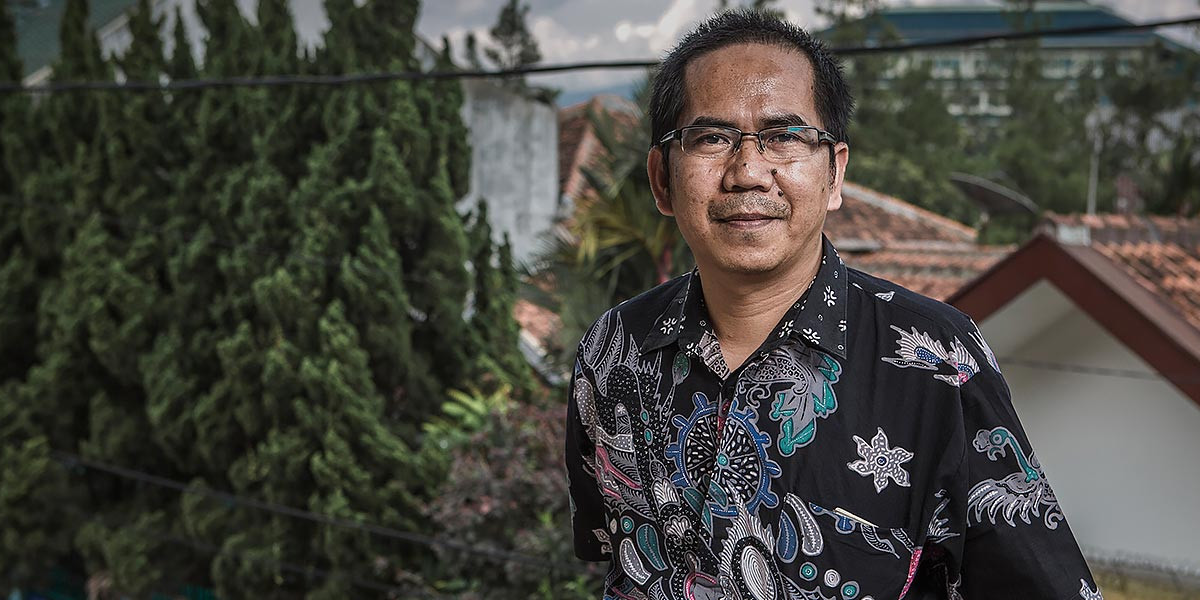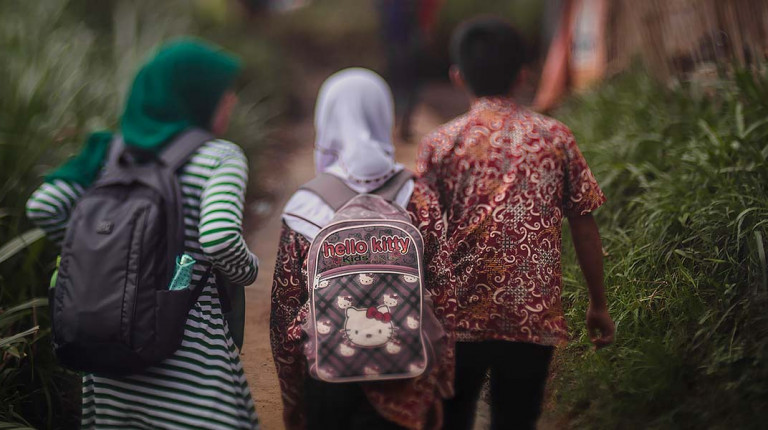Agus was seven years old when he was dropped off at an orphanage in Bandung, Indonesia. Like most of the children there, his parents were still alive – they just couldn’t afford to keep him.
Indonesia has the highest percentage of children growing up in an institution in the world. About half a million of its children are in care, many spending their childhoods in appalling and unregulated conditions.
It is a myth that children in orphanages have no parents. 94% of children in residential care in Indonesia have at least one living parent.
Most are there because their parents can't afford to feed, clothe and educate them. Mothers and fathers are forced to make the agonising decision to put their child in an institution in the hope that they will have a better future, but for many children, life in an orphanage is damaging to their development, and leaves them vulnerable to abuse.
Children who grow up in residential care homes are more likely to suffer from stunted growth and behavioural problems and have a lower IQ than those raised at home or in foster families.
The nurture and care I received was not of the highest standard. I hope that in the future, care for the children in the orphanage will be much better.
After working as a teacher, Agus returned to the place where he spent most of his childhood. Nugraha orphanage is also where he met his wife. Argus is now the manager, and lives at the orphanage with his wife and their three children.
We try to create a family atmosphere. My own children call me and my wife papa and mama, the children in the orphanage call us the same. We try not to draw a line between them and us.
According to UN figures, 8 million children are languishing in orphanages because parents can't afford to pay for their food, clothes and education.
Save the Children is working to protect some of Indonesia’s most vulnerable children. We try to keep children out of orphanages, and reconnect them with their families. At Nugraha orphanage, the roll has dropped from 125 children to 45.
Previously, before the start of the new school year, we sent staff out to look for children in remote areas to bring them to our orphanage. Since implementing the National Standard, I found out that what we were doing was a big mistake. Now we are no longer outreaching, but accepting children based on referral.
Save the Children is trying to change the focus from institutional care to community and family based care. Through our Family First programme we are working to improve the living conditions of children in Indonesian orphanages, and regulate the standards of care they receive. The programme will reach 400,000 children and adults.
We used to prohibit children from contacting their parents. There was a concern that if the children went home often they would feel uncomfortable when they returned to the orphanage. But now there is more freedom. We are open and welcome parents when they visit their children.



